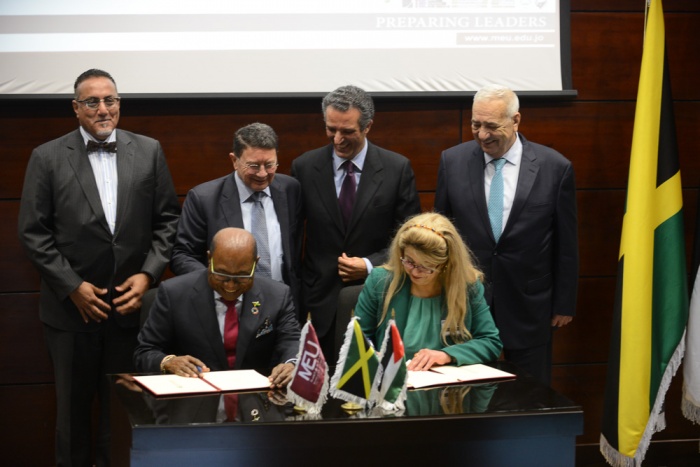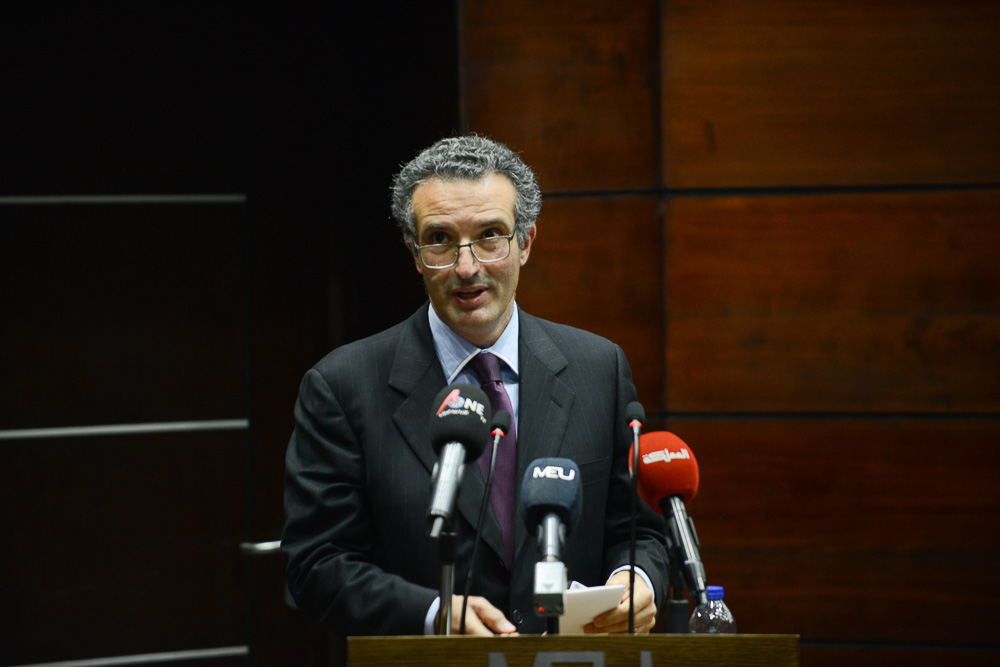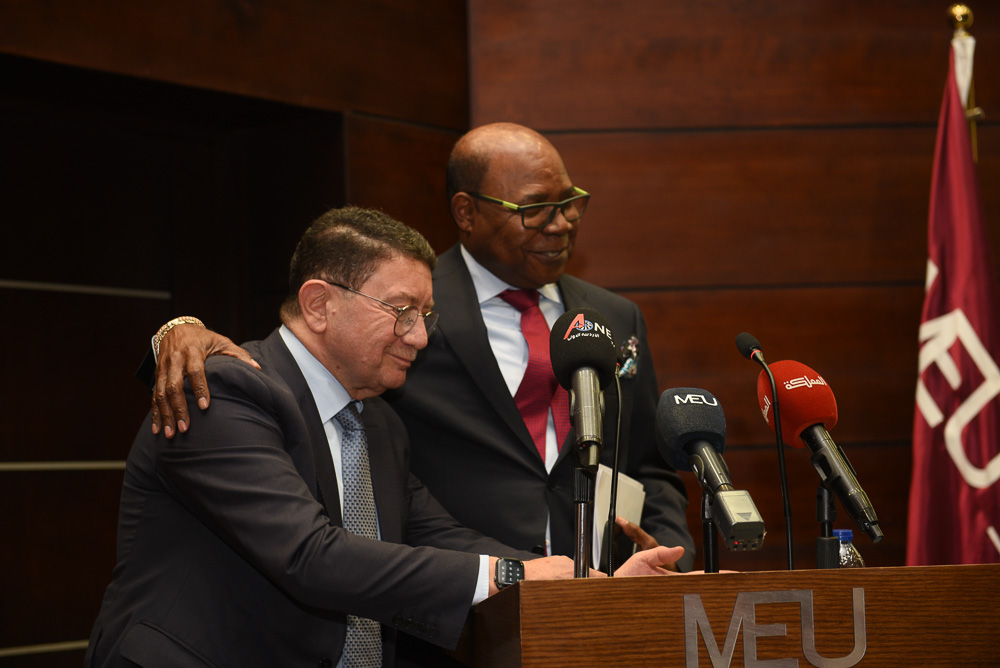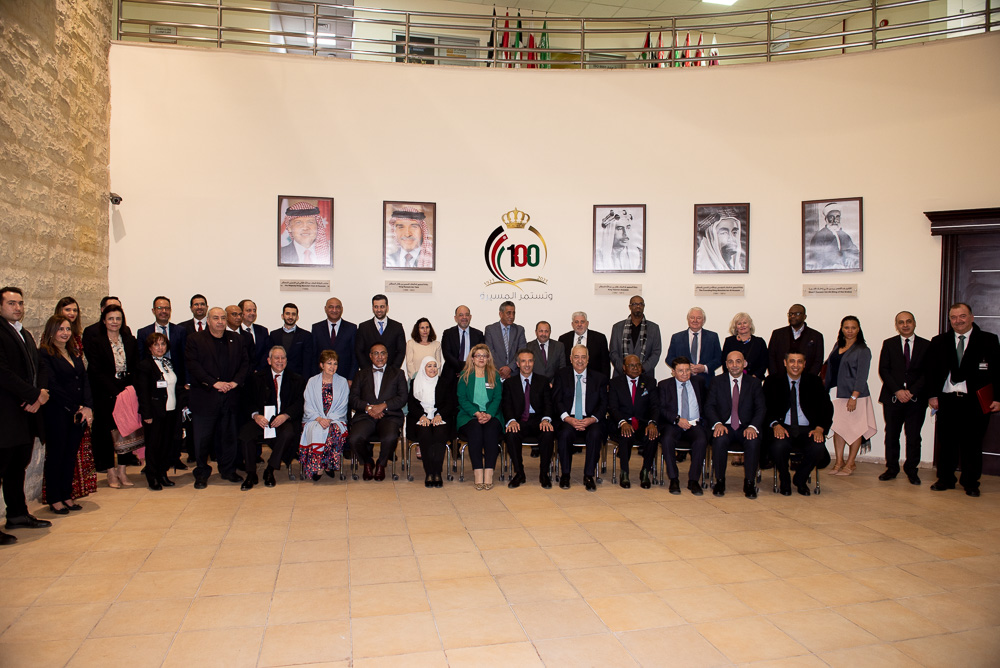
Global Tourism Resilience & Crisis Management Centre launches in Jordan
Jamaica minister of tourism and Global Tourism Resilience & Crisis Management Centre (GTRCMC) co-founder, Edmund Bartlett, has landed in Jordan to inaugurate a new location for the organisation.
The new centre at the Middle East University will be referred to as the Taleb Rifai Centre.
It will operate under the leadership of professor Salam Almahadin, president of the university.
Bartlett arrived earlier, accompanied by Kenya minister of tourism, Najib Balala.
They were greeted in Amman by Jordan minister of tourism, Nayef Himiedi Al-Fayez.
Jordan minister of tourism, Nayef Himiedi Al-Fayez, led the celebrations in Amman
Minister Al-Fayez of Jordan, said: “We welcome the inception of the Taleb Rifai Centre here at the Middle East University.
“We trust that this initiative will play a key role in delivering resilience, robustness and agility to the tourism industry which is one of the most important sectors in the Jordanian economy through its 13 per cent contribution to GDP.”
The Jordan facility is the third such satellite centre to launch, followings the GTRCMC debut in Jamaica and a facility in Kenya.
ADVERTISEMENT
Earlier this month, the GTRCMC successfully launched the Global Tourism Resilience Day during an event at Expo 2020 in Dubai.
The move was part of a multi-tier, international campaign to build resilience in the global travel industry through expansion of the Global Tourism Resilience & Disaster Management Centres.
A book tourism resilience was also released, outlining best practice.
The GTRCMC model works in partnership with an outstanding institution of higher learning, namely a well-situated university with departments covering management, research, innovation, civics, policy creation and international development.
Middle East University is just such a partner and will be the regional driver for further expansion in the Middle East and north Africa.
Opened in 2005, the university has around 5,000 students, and through the Taleb Rifai Centre will seek to deliver an academically rigorous environment that will identify solutions.
Minister Bartlett welcomes Taleb Rifai to the stage during the event
“We will seek funding to conduct research and develop policies in tourism resilience and crisis management, provide capacity building for the tourism sector and provide toolkits and guidelines.
“We will utilise its professional relations with other universities across the region and beyond to establish bilateral and multilateral projects and exchange programs,” explained Almahadin.
Dozens of industry leaders from around the world were in attendance
Just days ago in Dubai, the GTRCMC signed and launched partnerships with Canadian and Bulgarian schools of higher learning.
In Toronto, George Brown College has seven academic centres and locations.
It is located on the territory of the Mississaugas of the Credit First Nation and other indigenous peoples, and seeks to build connections between people who learn, work and live in the community.
In Bulgaria, the 100-year-old University of National and World Economy - the oldest and largest school of economics in south-east Europe - was the selected partner.
A new centre will be established under the tutelage of former tourism minister, Nikolina Angelkova.
“The students at all these universities are critical to the program’s success in that it starts with research, understanding and developing the regional risk profile, recommending best practices to influence policy-making based on empirical data and other success-based programs,” Bartlett elaborated.
“It’s a five-step program starting with the youth: research, evaluate, mitigate, respond and recover.”
More Information
The Global Tourism Resilience & Crisis Management Centre, headquartered in Jamaica at the University of the West Indies (Mona campus), was the first academic resource centre dedicated to addressing crises and resilience for the travel industry of the region.
The body assists destinations in preparedness, management and recovery from disruptions and/or crises that impact tourism and threaten economies and livelihoods globally.
Since its inception in 2018, several satellite centres have been launched in Kenya, Canada, Jordan and Bulgaria.
Others are in the process of inscription in Costa Rica, Nigeria, Spain, Greece and Ghana.
Find out more about the Global Tourism Resilience & Crisis Management Centre on the official website or take a look at a series of shots from the dedication of the centre here.




